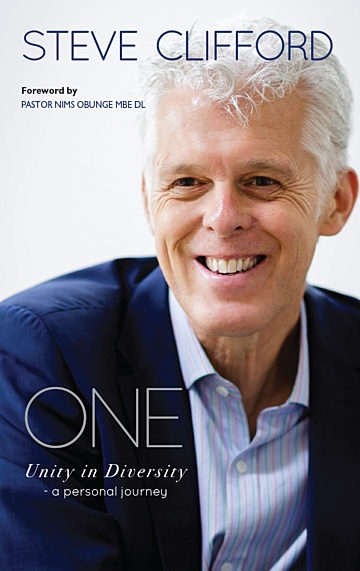One - Unity in Diversity by Steve Clifford
An at times painful account about church unity from the Evangelical Alliance director, but one which conveys the enormous energy which has pervaded the scene. As it focuses on the evangelical scene, it is part of the story, not the whole
 One - Unity in Diversity – a personal journey
One - Unity in Diversity – a personal journey
By Steve Clifford
Monarch
ISBN: 978-0857218193
Reviewed by Michael Docker
Having always been interested in matters of church unity and the ecumenical movement I came to this book with high expectations.
They were met in part. Steve Clifford, the current Director of the Evangelical Alliance, was formed in the new church world, but has been ‘tasked’ to take charge of the much more traditional inter-church body. One, expressed as unity in diversity, is almost entirely considered in relation to the evangelical church scene. The wider ecumenical scene (Churches Together etc) gets some mention, but not much, to my disappointment.
Nevertheless it is what it is, this book, an intensely personal account (subtitled a personal journey). At times it is painful and honest. Steve tells, not self-pityingly, how much he himself has invested in efforts for unity (telling here is the chapter on relations within the evangelical world, with reference to, for example, Steve Chalke). He considers unity as a theme running through every aspect of personal, social and Christian life – from marriage and children to church unity and social action.
Personally, I could have done without the Bible study. It’s all good solid stuff, but not terribly original and, to my mind, takes up a huge amount of space that could have been put to better use giving more context to the story being told – the context of the wider church and national scene.
In fact, a phrase Steve uses in this study is, I think, problematic - ‘The Bible makes it clear’. It too closely echoes the political equivalent (‘we have made it clear’; in reality, everybody knows ‘they’ have done no such thing). Besides, it says more about who’s saying it than the Bible itself. I imagine factions within evangelicalism holding very different views all saying ‘The Bible makes it clear’. No wonder this approach to unity is so painful; the very language leaves little room for diversity at all.
In telling the story of such things as Hope, Soul Survivor and the growing unity between black-led and predominately white evangelical church groupings, he conveys a sense of the enormous energy and excitement that has pervaded the scene in recent years – he tells how this has spilled over into city-wide action in places such as Salford and Southampton. Unity around Christian action, evangelism and mission is, I think, the most common experience of Christian unity these days. Steve himself expresses his own ambivalence about institutional forms of unity; I’m sure it’s widely shared.
There is, I think, a story to be told about the changing church scene in this country of the last 50 years; the multi-faith scene, the rise of the new churches, denominational decline – and, in some places, renewal - the changes in ecumenical relations, unresolved matters of doctrine; the limits to activism. Steve Clifford’s book is timely and useful; it is a part, but it is not the whole of that story.
Michael Docker is minister of Tyndale Baptist Church, Bristol
Baptist Times, 05/10/2018